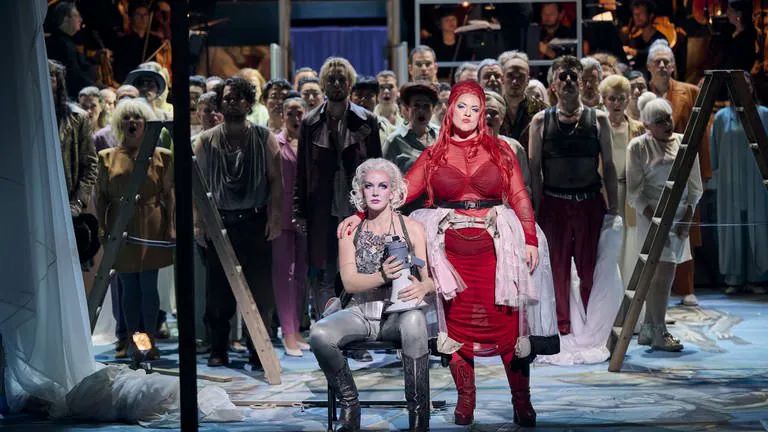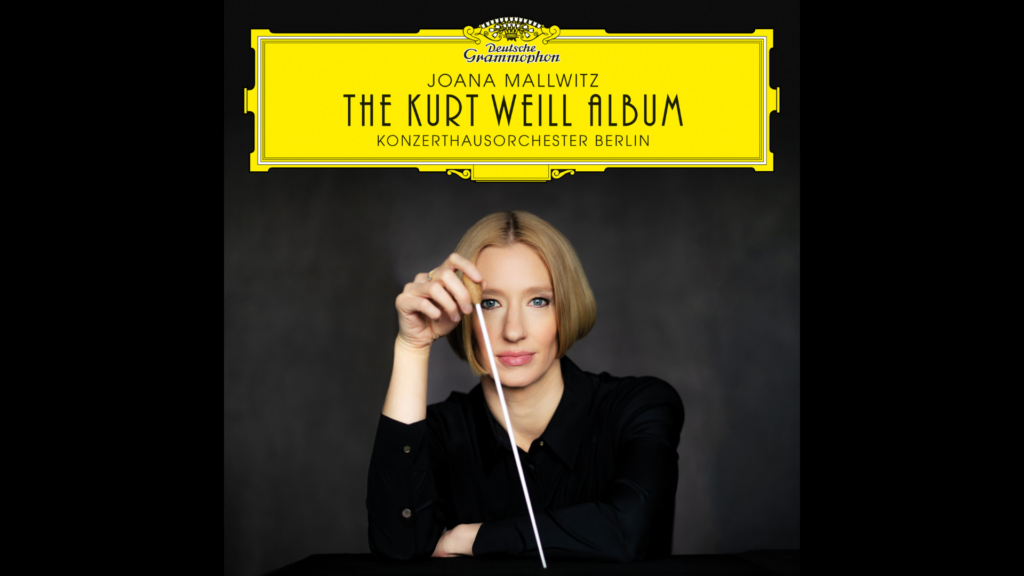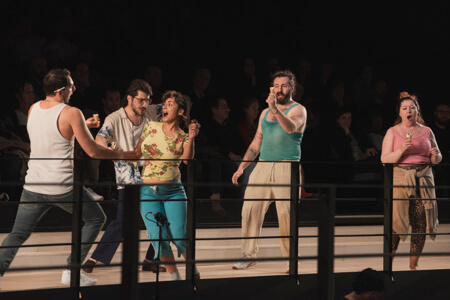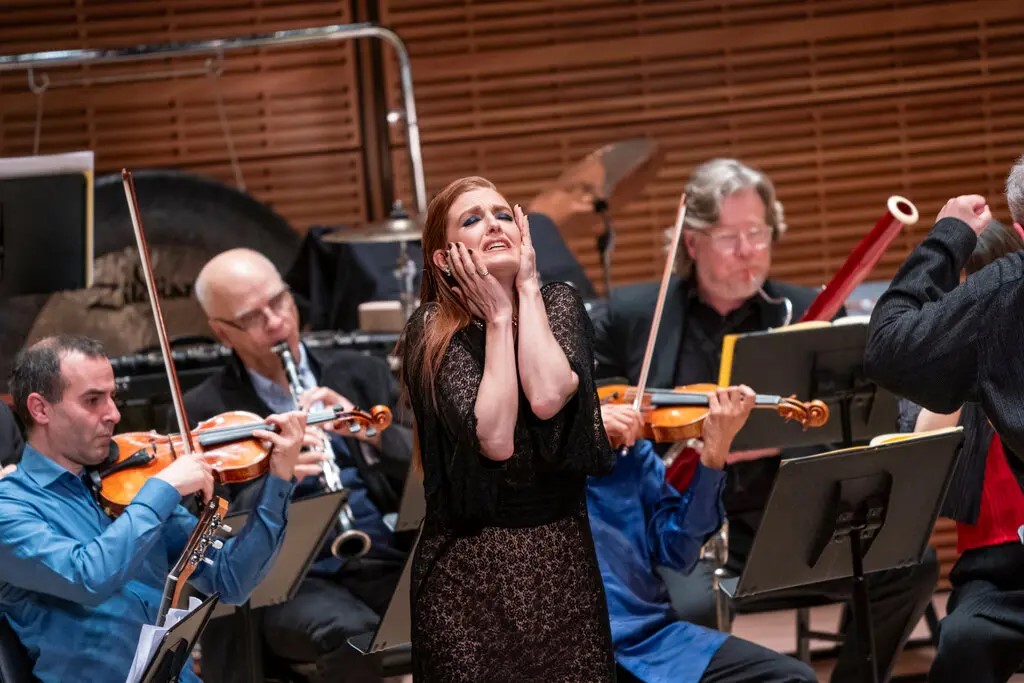
New Mahagonny Production in Stuttgart
Foregrounds Female Perspective
|
Ida Ränzlöv (Jenny) and Alisa Kolosova (Leokadja Begbick) and cast. Photo: Martin Sigmund |
Aufstieg und Fall der Stadt Mahagonny is by now securely part of the opera repertoire. Its frequent productions exhibit a wide range of directorial approaches. The “Next Generation” winner of the 2021 Mortier Award, Ulrike Schwab has brought to Staatsoper Stuttgart a perspective that foregrounds the two female leads, Leokadja Begbick and Jenny. As described by Dominique Adrian in Resmusica, “the director portrays Jenny with visible sympathy and makes Begbick out to be a self-confident woman, not at all a victim.” Schwab’s perspective is supported by strong casting, with Adrian lauding Ida Ränzlöv’s Jenny as “phenomenal” and Ludwig Steinbach assessing Alisa Kolosova’s Begbick in Der Opernfreund as “imposing and exemplary.” This approach, praised by some, also brought some signs of critical unease. Markus Thiel writing in Merkur warns against the “cliché corner” of the “female buddy movie,” though he concludes that Aufstieg can “tolerate the reevaluation well.” Schwab empowers her two protagonists at the center of what one reviewer described as a “high-speed, evil variety show” in a set design by Pia Dederichs and Lena Schmid that evokes Michelangelo’s “Last Judgment.” The position of the orchestra onstage rather than in the pit led to acoustic concerns, particularly in the earlier part of the piece during which the use of classic Brechtian curtains muffled the sound. With the passage of the hurricane having blown down the curtains, the orchestral sound emerged to better effect. Alexander Walther of the Online Merker lauds the Stuttgart State Orchestra’s performance under Cornelius Meister as “brilliant,” and likewise appreciates that of the State Opera Choir under the direction of Manuel Pujol as “excellent.” |
Love Life Volume Newly Published |
|
A section of the opening page of the male quartet “Economics,” |
The Music Publishers Association has bestowed its prestigious Paul Revere Award on the newly released critical edition of Love Life, citing it as the first place winner in its category. Recognizing “outstanding examples of graphic design, with an emphasis on usability for orchestras, educators, libraries and individuals,” the award is a testament to the steadfast level of excellence maintained by publications in the Kurt Weill Edition–Love Life is the eighth to be so honored. Managing Editor Elmar Juchem and engraver Stephen Gibson were largely responsible for the graphic quality of the volume. From its founding in the 1990s, the KWE has pioneered the field of Broadway musical critical editions. Love Life is the fourth American musical theater work published in the KWE, following The Firebrand of Florence, Johnny Johnson, and Lady in the Dark. It is also among the largest editions yet, with 888 score pages distributed across two volumes, plus a critical report of 237 pages. Editor Joel Galand’s magisterial introductory essay runs to more than 30,000 words. Performing materials deriving from the new edition have already been tested in productions in Freiburg and Bern, and are poised for further use in not just one but two new productions planned for 2025: one by Opera North and one by New York City Center’s Encores!, whose presentation in March 2020 was postponed because of COVID. For information on subscriptions or purchase of individual volumes of the Kurt Weill Edition, contact kwfinfo@kwf.org . |
Spring Issue of Kurt Weill Newsletter Published |
|
The latest issue of the Kurt Weill Newsletter offers a trove of varied treasures. Leading the way is a previously unpublished essay by the supremely influential Weill scholar David Drew, shedding new light on the relationship between Mahagonny and both popular music and German operatic tradition. A summary roundup of the significant Weill presence in Carnegie Hall’s festival “Dancing on a Precipice” includes a review of Ensemble Modern’s stunning performance of the fifteen-player version of Die sieben Todsünden with Wallis Giunta, conducted by HK Gruber. Lenya Competition prizewinner Jeremy Weiss offers an insider’s look at the rapturously received production of Street Scene excerpts by the Paris Opera Academy this past April. |
|
|
|
|





